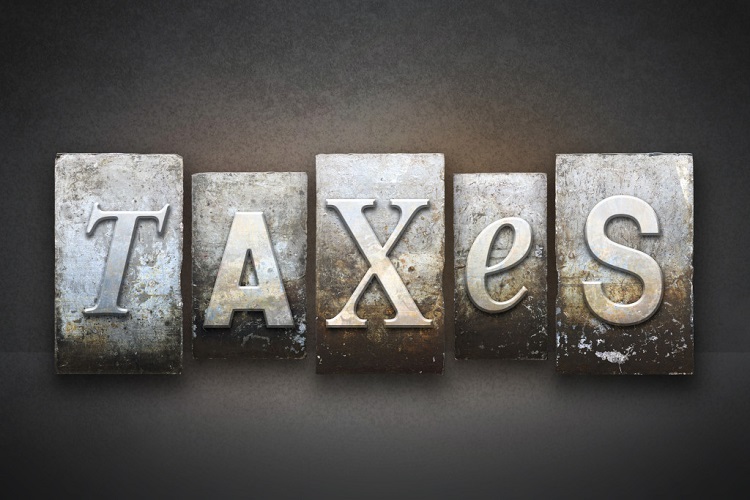What if you didn’t pay your tax bill in full on April 15? Don’t panic but don’t ignore the problem either. If you speak with any banker or financial advisor, they will tell you this is a common problem, especially if it is a cash flow issue.
(1) File your return. Make sure that you file your tax return as soon as possible, if you haven’t already. You want to avoid the failure to file penalties, which can be quite ugly. If you’ve already missed the deadline, still file as soon as you can. Penalties accumulate daily. If you file 30 days late, you will owe a penalty. Instead, if you file 60 days late, the penalty will be twice as bad as if you had filed 30 days late. In additional, you will owe interest on the penalties. There are a lot of details with regard to calculating penalties and these are intentionally omitted here. In fact, Turbo Tax will not calculate interest and penalties online because “The IRS treats each late filer individually and calculates penalties and interest on a case-by-case basis”.
(2) Find out what the failure to pay is costing you. Ask your CPA to estimate the amount of interest and penalties that will be accumulating on your late payment, if possible. Remember that you (actually, your CPA) need to do two calculations. One calculation determines the interest rate and the other calculation determines the penalties. You need to know what failing to pay is costing you.
(3) Find the money to pay the taxes. Talk to a banker and see if you qualify for a loan. If you have your own business and you have been in business for two years or more, you may be eligible for a loan backed by the Small Business Bureau. Consider using credit cards, especially if you qualify for an introductory zero percent interest rate. Consider pulling equity from your house, if you own your house.
(4) Follow up with the IRS. If you can’t find the money to pay your taxes, you have several options, all of which involve following up with the IRS. You should consider speaking with a tax attorney or CPA knowledgeable in this area. It’s critical to speak with a specialist in this area, not just any attorney or any CPA.
Negotiate a payment plan. The simplest solution is to negotiate a payment plan with the IRS. The word “negotiate” is a bit misleading here because you cannot decrease your tax liability through the negotiations. This is a way for you to pay over time, not settle your debt. However, if you go this route, you have several major perks. One perk is that it may prevent the IRS from placing liens on your personal property, which then impact your credit score. It stops any IRS collection efforts; in plain English, this keeps the IRS from seizing your assets to collect the past due taxes. A link to the IRS’s website regarding payment plans is below.
http://www.irs.gov/Individuals/Payment-Plans-Installment-Agreements
Consider filing an Offer in Compromise. If you genuinely cannot pay your taxes, then you should consider filing an Offer in Compromise with the IRS. An Offer in Compromise will reduce the underlying tax debt. The IRS now offers a tool online called the Offer in Compromise Pre-Qualifier to confirm eligibility. The link to this tool is below.
http://www.irs.gov/Individuals/Offer-in-Compromise-1
Please be aware that only a small percentage of tax-reduction offers are accepted. The ideal candidate for an Offer in Compromise in an individual with no assets and no future earning potential. Of course, people who are earning money also can have their debt reduced if the IRS believes that they do not have the ability to pay past due taxes. If the IRS believes that you have the ability to pay, expect to pay.
Hardship Letter. The purpose of a Hardship Letter is to have the IRS officially state that your tax debt is currently uncollectible. This should stop collection effects for a time period but the IRS will periodically review your situation to determine whether your tax debt is now collectable. Interest and penalties continue to accrue, even though your debt is not currently collectable.
(5) Don’t get suckered. Finally, don’t get suckered by cable TV ads that promise to settle your tax bill for pennies on the dollar. In extreme cases, you or a tax-resolution company acting on your behalf may be able to file an Offer in Compromise with the IRS and settle your tax debt for far less than you owe. But only a small percentage of tax-reduction offers are accepted, and you must prove that you don’t have the means to pay and probably never will, usually because you’re too old, too poor or too sick. If you are employable and have assets you can sell to raise cash, be prepared to pay the IRS.
Overall, it is critical that you proactively address any tax problems with the IRS. It is highly recommended that get help from a qualified CPA or tax attorney to do so. Please keep in mind that the above tips are a 10,000 foot view of the basic framework for dealing with unpaid taxes; your specific situation needs to be addressed in detail by an appropriate advisor.

